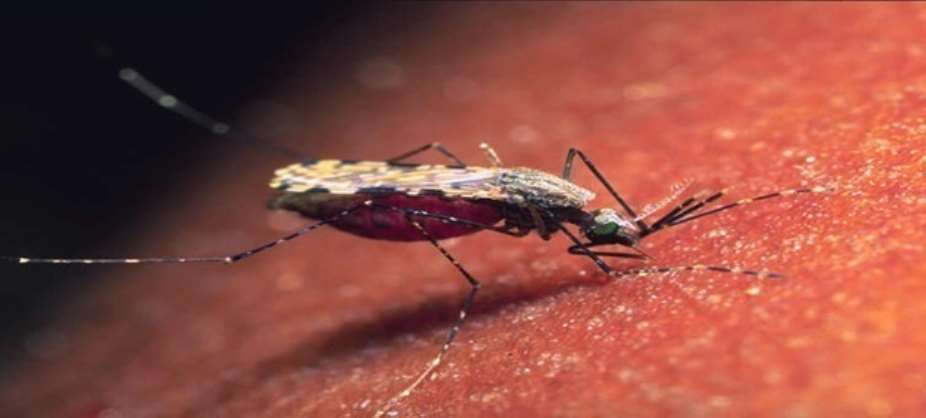An Entomologist and Malaria Focal Person of the Upper East Regional Directorate of the Ghana Health Service (GHS) Sydney Abilba says vector-borne disease has been one of the major problems of the GHS.
Mr. Abilba stated that GHS is doing everything possible to ensure that diseases that are caused by insects (vector-borne) do not become public health emergencies.
The Entomologist was speaking in an interview with ModernGhana News in Bolgatanga on the sidelines of the ongoing Seasonal Malaria Chemoprevention Exercise (SMCE).
He said, the most common one is malaria which is caused by a vector, the anopheles Mosquito however, there are many vectors (insects) that causes other conditions such as the Aedes for Rift valley fever, yellow fever, Dengue and Chikungunya fever, Anopheles spp. for Lymphatic filariasis among others.
He added that predominantly what is more problematic in our settings is malaria and (lamphatic filariasis) that swells up the lower limbs known as elephantiasis.
But currently, Mr Abilba noted that there are no cases of yellow fever, lamphatic filariasis through the intervention of mass drug administration by the Ghana Health Service (GHS) which has kept the situation under control in the country.
With malaria he said, is still a problem at hand with interventions such as mosquito bed nets and Indoor Residual Spray (IRS) which is able to reduce the vector density, that is the number of mosquitos in our households.
He added that the bed net also prevents the mosquito from getting into contact with its host.
The Entomologist indicated that there are indoors and outdoors mosquitos and research has shown that the causative agent of malaria in this part of our country is the indoors resting mosquitos.
He indicated that after the blood meal by the mosquito, the rest on the walls to nourish the eggs with the protein in the blood before going to lay them at the breeding site.
As they rest on the walls, they take in the chemical of the IRS which goes to act on the central nervous system which create paralyses and in the process they die and that reduces victor density (mosquito population).
Mr. Abilba talked of other interventions such as larviciding or larval source management to destroy or kill larvae before they grow into full mosquito.
He said, all this is in an attempt to eradicated malaria from the system by the Ghana Health Service.





 Whoever participated in the plunder of the state must be held accountable – Jane...
Whoever participated in the plunder of the state must be held accountable – Jane...
 A vote for John and Jane is a vote to pull Ghana from the precipice of destructi...
A vote for John and Jane is a vote to pull Ghana from the precipice of destructi...
 I’ll repay your abiding confidence with loyalty, understanding and a devotion to...
I’ll repay your abiding confidence with loyalty, understanding and a devotion to...
 ‘I’ve learnt deeply useful lessons for the future' — Serwaa Amihere breaks silen...
‘I’ve learnt deeply useful lessons for the future' — Serwaa Amihere breaks silen...
 I’m sorry for the embarrassment – Serwaa Amihere apologises for leaked sex video
I’m sorry for the embarrassment – Serwaa Amihere apologises for leaked sex video
 Dumsor: Matthew Opoku Prempeh not in charge of Energy sector – Minority
Dumsor: Matthew Opoku Prempeh not in charge of Energy sector – Minority
 Adu Boahen’s murder: Police arrest house help who was in possession of deceased’...
Adu Boahen’s murder: Police arrest house help who was in possession of deceased’...
 Akufo-Addo nominates Felicia Attipoe as Tema West MCE
Akufo-Addo nominates Felicia Attipoe as Tema West MCE
 Election 2024: I can't have someone I defeated twice as my successor – Akufo-Add...
Election 2024: I can't have someone I defeated twice as my successor – Akufo-Add...
